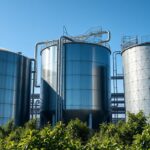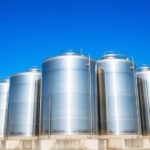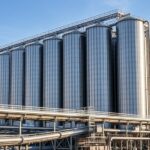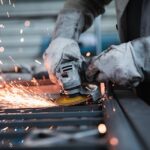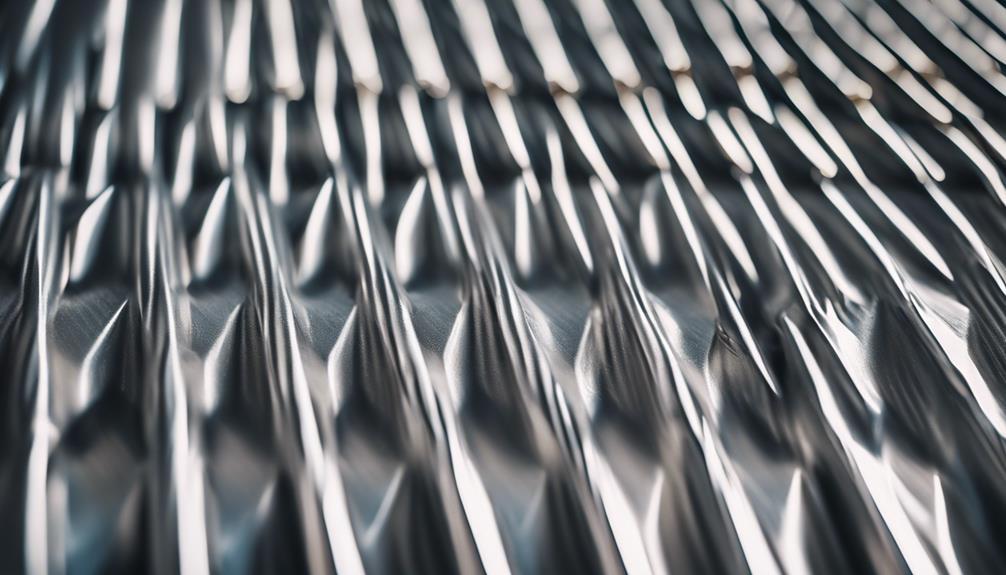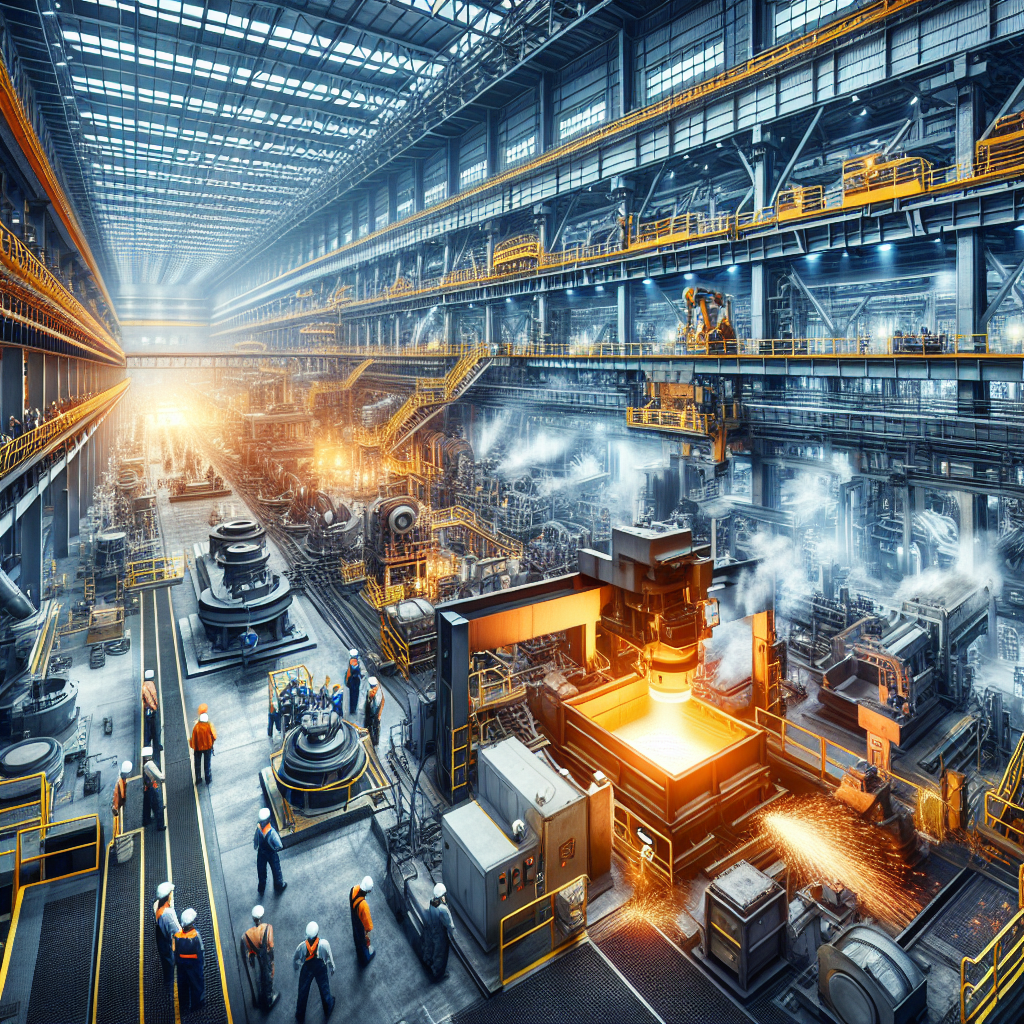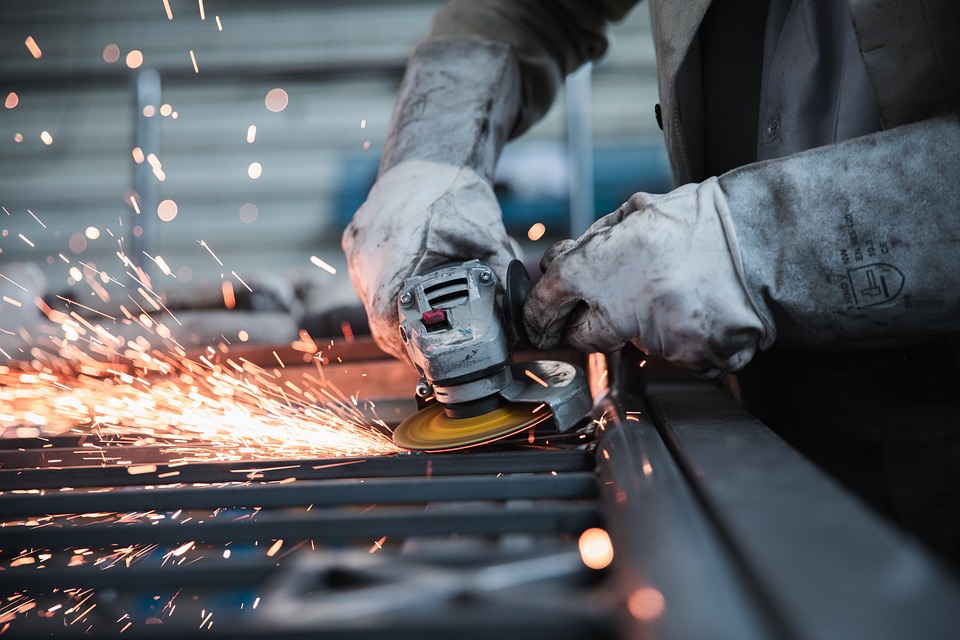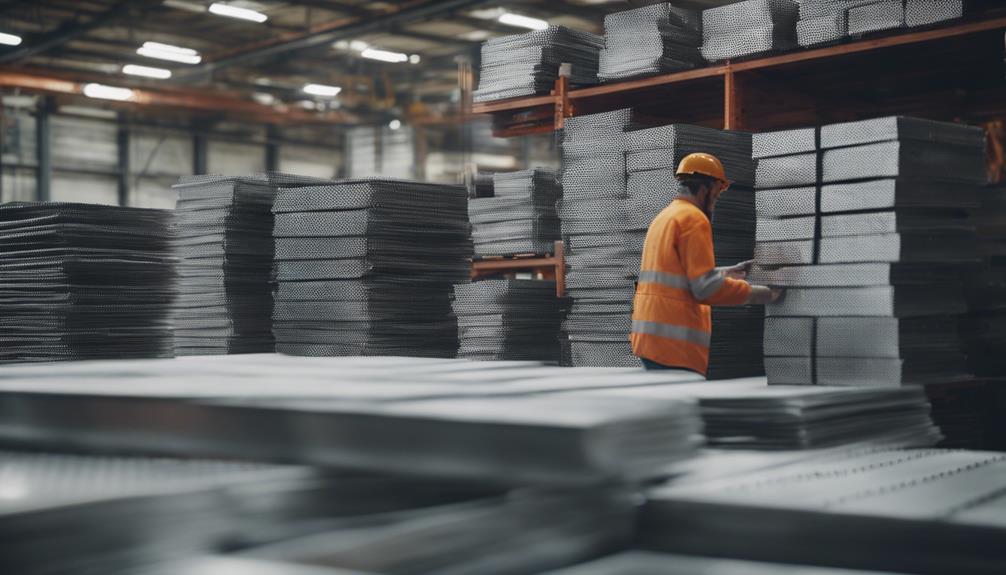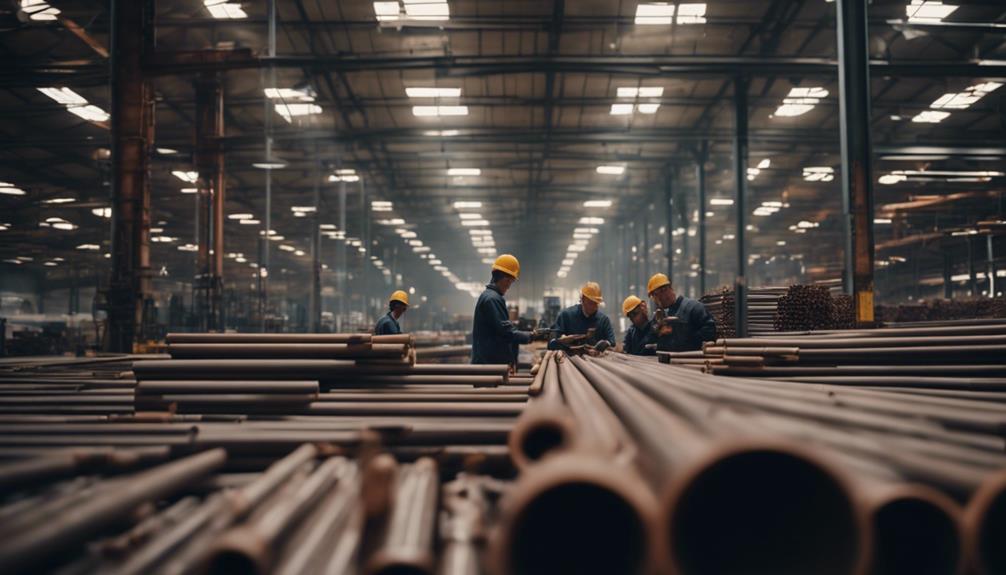Corrugated sheets come in various thickness options, typically ranging from 0.01 to 0.1 inches. Popular choices include 0.032, 0.039, and 0.063 inches, with thicker options like 0.1 inches offering increased durability and strength for applications. The length varieties of corrugated sheets range from 5 7/8 x 5 7/8 to 17 7/8 x 23 7/8, catering to different project needs. Additionally, corrugated plastic sheets are lightweight, durable, and weather-resistant, commonly used in packaging, signage, and protection applications. The corrugated metal panels, manufactured through a cold-form process, exhibit high strength-to-weight ratios due to their corrugated shape, making them impact-resistant. If you're interested in learning more about the advantages and applications of corrugated sheets, continue exploring the detailed characteristics and uses outlined.
Key Takeaways
- Corrugated sheets come in thicknesses from 0.01 in to 0.1 in for varying durability and strength.
- Length options range from 5 7/8 x 5 7/8 to 17 7/8 x 23 7/8, with popular sizes like 8 1/2 x 11.
- Corrugated plastic sheets are lightweight, weather-resistant, and customizable for diverse applications.
- Corrugated metal panels are cost-effective, durable, and offer high strength-to-weight ratios.
- Corrugated metal is a preferred roofing material due to its durability, energy efficiency, and aesthetic appeal.
Corrugated Sheet Thickness Options
When considering corrugated sheet thickness options, it is crucial to select the right gauge to meet the specific requirements of your project. Common thicknesses range from 0.01 in to 0.1 in, with popular choices including 0.032 in, 0.039 in, and 0.063 in. Thicker options like 0.1 in provide increased durability and strength, suitable for applications where robustness is paramount. The thickness of corrugated sheets directly impacts their weight, rigidity, and resistance to bending or impact. Choosing the appropriate thickness guarantees the structural integrity and longevity of the project, whether it involves roofing, packaging, or any other application where corrugated sheets are used.
Corrugated Sheet Length Varieties
Among the array of options available for corrugated sheet lengths, a diverse selection ranging from 5 7/8 x 5 7/8 to 17 7/8 x 23 7/8 caters to various project requirements. These lengths are often offered in bundle sizes such as 50/Bundle, 100/Bundle, and 300/Bundle. Popular sizes like 8 1/2 x 11, 11 7/8 x 13 7/8, and 20 x 20 are commonly available, along with larger corrugated pad sizes including 24 x 24, 24 x 36, and 26 x 38. For more specific needs, special bundle sizes like 5/Bundle, 50/Bundle, and 100/Bundle are provided, each with unique dimensions to accommodate different applications. This variety ensures that there is a suitable length option for every project requirement.
Corrugated Plastic Sheet Applications
Corrugated plastic sheets find extensive applications across various industries due to their lightweight nature, durability, and weather-resistant properties. Common uses include packaging, signage, and protection applications. Their lightweight design makes them easy to handle and install, while their resilience guarantees long-lasting performance, especially in outdoor environments. These sheets are highly customizable, allowing for easy cutting and shaping to fit specific project requirements. Industries such as construction, agriculture, and advertising benefit from the versatility of corrugated plastic sheets. Additionally, their cost-effectiveness compared to traditional materials makes them a popular choice for businesses looking to optimize their expenses without compromising on quality and performance.
Corrugated Metal Panel Characteristics
Tough and versatile, corrugated metal panels exhibit exceptional characteristics ideal for siding and roofing applications. These panels, manufactured through a cold-form process, offer high strength-to-weight ratios due to their corrugated shape. The grooves in corrugated metal panels enhance tensile strength, making them resistant to impact and weight loads. Materials like Galvalume and galvanized corrugated metal sheets provide superior protection qualities, unmatched by other options. Furthermore, these panels are known for being cost-effective, durable, and energy-efficient. Their ease of installation adds to their appeal, making them a popular choice for various construction projects requiring reliable siding and roofing solutions.
Corrugated Metal Uses in Roofing
Demonstrating exceptional resilience and efficiency, corrugated metal finds widespread utilization in roofing applications due to its cost-effectiveness, durability, and energy efficiency. Corrugated metal roofing is a cost-effective option that outlasts traditional materials like asphalt shingles or clay tiles. Its durability allows it to withstand elemental conditions such as hail, snow, heat, wind, and fire, making it a popular choice for various climates. The grooved steel design of corrugated panels enhances tensile strength, providing resistance to impact and weight loads. Additionally, the round and wavy shape of corrugated metal roofing not only contributes to its durability but also enhances the aesthetic appeal of the building. These qualities make corrugated metal roofing panels increasingly preferred for their advanced protection capabilities and long-lasting performance.
Corrugated Metal Panel Advantages
With exceptional durability and weather-resistant properties, corrugated metal panels offer a range of advantages for various applications. These tough and lightweight materials are known for their high strength-to-weight ratio, making them ideal for roofing and siding projects. Corrugated metal panels are manufactured using a cold-form process, resulting in advanced protection qualities that are unmatched by other materials. Their ability to withstand impact and weight loads can be attributed to the steel grooves that increase tensile strength. Due to their durability and easy maintenance, corrugated metal panels are commonly used for roofing, metal siding, paneling, decorative screens, and fencing. This versatility and resilience make them a popular choice for a wide range of construction and design needs.
Corrugated Panel Roofing Options
When considering roofing options, corrugated metal panels stand out for their exceptional strength-to-weight ratio and durability, making them a popular choice for various construction projects. Galvalume corrugated panels, comprising 55% aluminum and 45% zinc, offer enhanced corrosion resistance, ensuring longevity. These panels are tough, lightweight, and weather-resistant, making them suitable for diverse applications. Corrugated metal roofing is known for being cost-effective, energy-efficient, and capable of withstanding harsh elemental conditions like hail and wind. With different pattern types available, such as 1/2, 7/8, and AG, corrugated metal panels provide versatility in roofing solutions. Consider corrugated metal panels for a durable, weather-resistant roofing option that offers strength without added weight.
Frequently Asked Questions
What Is a Corrugated Sheet?
A corrugated sheet is a material known for its strength and flexibility, commonly used in roofing, siding, and packaging. It features parallel ridges and grooves that enhance structural integrity, making it resistant to impact and weight loads.
What Is the Thickness of a Corrugated Sheet?
The thickness of a corrugated sheet can vary depending on the application, ranging from 0.01 inches to 0.1 inches. Options like 0.032 in, 0.039 in, 0.063 in, and 0.1 in offer different levels of durability and strength.
What Is Corrugated Plastic Sheet Called?
Corrugated plastic sheets are commonly known as Coroplast sheets in the industry. They are lightweight, durable, and have a hollow fluted structure that provides strength and flexibility. These sheets are versatile for various applications due to their resistance to water, chemicals, and impact.
What's the Difference Between Corrugated Steel and Galvanized Steel?
The difference between corrugated steel and galvanized steel lies in their composition and purpose. Corrugated steel refers to the shape of the metal sheet, providing strength, while galvanized steel has a zinc coating for corrosion resistance, ideal for outdoor applications.

